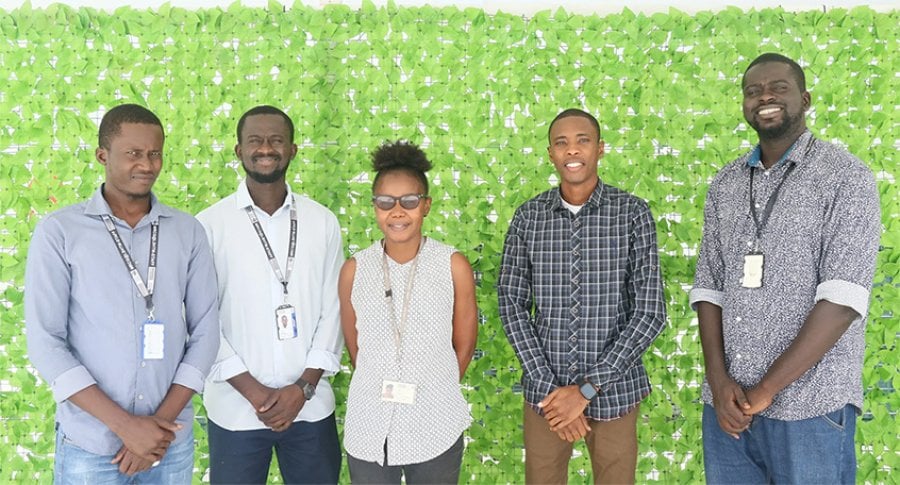
Photo credit: MRCG at LSHTM/Mamud Joof
The winning idea, which was awarded a prize of £15,000, aims at establishing an integrated recycling scheme for plastic and green waste in the Unit, using a 3D printer and biodigester. The innovative award-winning idea was also voted top of all entries in the competition that was open to about 21 institutions.
The Unit is the second largest employer in The Gambia, with more than 1000 staff and students. As such, it produces significant quantities of plastic and green waste. This waste is currently not recycled, ending up either in landfills or being incinerated.
The first part of the project is a plastic recycling plant with a 3D printer that will use plastic waste materials generated by the Unit. The plastic waste will be shredded and melted at the plant, and then used to 3D print a range of reusable products, including laboratory plastic ware, medical components, waste bins and outdoor furniture.
The green waste recycling plant will largely be constructed using objects printed by the 3D printer. This plant – known as a biodigester – will use organic waste, such as leftover food, to produce methane. This gas will then be used to power the cookers in the Unit’s ‘Bantaba’ restaurant. Bio-slurry, produced as a by-product of the reaction in the biodigester, could in turn be used as fertiliser for landscaping and community vegetable garden.
Reacting to the news, the team lead Dr Aliyu Nuhu Ahmed, a PhD student with the Nutrition and Planetary Health theme at the MRCG at LSHTM said, “This is a huge moment for the team. We look forward to the project implementation with great enthusiasm. Our integrated system of waste recycling will not only contribute to dealing with the waste generated at the MRCG at LSHTM, but also build capacity on recycling waste within the broader community.”
This project is only the first step in increasing sustainability, as the Unit launches more research and other initiatives on planetary health. The long-term plan is to eventually see the winning team partner with the Unit’s management to scale up and serve the community’s demand for recycled products, organise training sessions on the recycling scheme, as well as share recycling skills with partner facilities.
Dr Davis Nwakanma, Chief Operations Officer of the Unit said, “It is an exciting opportunity for the students and the Unit. This project aligns with the Unit’s objective to reduce carbon emission and improve the environmental sustainability of our operations. We look forward to supporting the project with the operational capabilities and personnel needed to ensure successful implementation.”
The Unit is in the final stages of developing its Energy and Carbon Management Plan which will detail the actions that need to be taken to reach net zero carbon emissions by 2030. This project will significantly contribute to achieving this goal.
If you enjoyed this article and would like to build a career in global health, we offer a range of MSc programmes covering health and data, infectious and tropical diseases, population health, and public health and policy.
Available on campus or online, including flexible study that works around your work and home life, be part of a global community at the UK's no.1 public health university.
